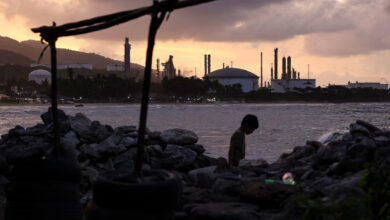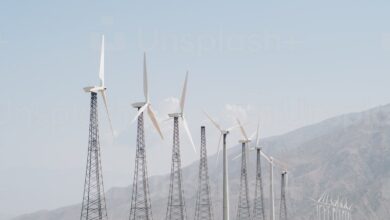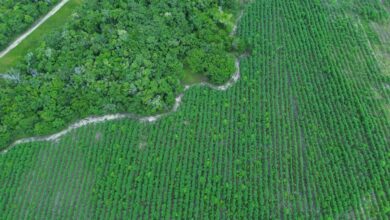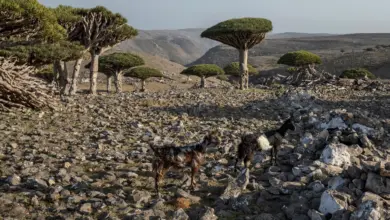The battle for Egypt’s constitution is under way, with the opposition decrying the hastily composed document’s failure to guarantee civil rights. However, another compelling yet unpublicized reason for voting “no” in the upcoming referendum is that the proposed draft ignores the nation’s most valuable and threatened resource, one that affects the quality of life of every citizen: land.
While the document refers to religious law to curtail civil freedoms, it fails to mention it when it might actually have proved useful. A desert-born religion, Islam offers sound advice on administering the environment with special attention to land and water scarcity. Although these issues will certainly determine the country’s future, I doubt most pro-Sharia agitators know the first thing about them.
The most distressing aspect of Egypt’s political descent into religious cant is how it overlooks enlightened aspects of the doctrine while dwelling on the most restrictive, for example, tawhid, the unity of being, where nature reflects God; and mizan, balance, whereby humanity is a part of, and respects, nature’s equilibrium.
The consequences are more dire than anyone cares to admit. The population is growing, arable land is diminishing and disputes over water have already resulted in casualties in Egypt’s beleaguered countryside. Yet no campaign has been launched, under the banner of a “green Islam” or otherwise, to conserve precious water.
The Prophet prohibited wasting water in no uncertain terms, even during prayer ablutions and even if washing beside a running stream. His injunctions, alongside a millennial scarcity, resulted in extensive Sharia rulings on water management that might also protect other resources.
Egypt’s imams, however, are too busy ranting and its politicians too self-satisfied to imagine they’ve missed such a crucial point.
According to Islam, humanity has been granted stewardship of the earth, and the duty to maintain a just balance is both its privilege and its test. The fact that the country’s coastal areas — outstanding natural and economic assets — have been subjected to unbridled, bribe-driven development, severely compromising marine life, is but one proof of failure.
Mizan entails replenishment as well as judicious use of resources. This translates neatly as sustainability, a much bandied-about concept that has virtually no basis in legislation, law enforcement or Egypt’s environmental reality.
“Plant trees, even on doomsday,” admonished the Prophet, as a means of reciprocating the land’s bounty. Egypt’s 19th-century ruler Mohamed Ali and his son Ibrahim claimed to have planted a million in the capital alone, an act of beneficence unmatched by their varied successors.
In the last two decades, the country established a number of environmental protectorates, echoing an Islamic institution, hima, that calls for the social and environmentally balanced use of tracts of common land. The upkeep of protectorates relies, however, on cooperation between an informed public and a committed state, conditions that Egypt has never met.
There is no evidence whatsoever of practicing Islam’s green ethics. The compassionate treatment of animals, for instance, is a frequent, nuanced topic in the Hadith, which is largely absent from daily life. “In the forehead of horses are tied up welfare and bliss …” said the Prophet.
But Islam’s failure to stand at the vanguard of environmental awareness is unsurprising. It’s enough to observe Saudi Arabia’s “stewardship” of the world’s greatest oil reserve to understand the prevailing attitude in these matters.
The anxiety Egyptian communities feel regarding the condition of their cities, water and land is as real as the ever-present stench of burning garbage. Yet no one is asking how people perceive environmental degradation or explaining how it might be constructively addressed. No one is encouraging students to adopt professions that could serve their nation’s needs for environmental research and expertise.
There is no national awareness program aimed at water, land and energy conservation that could also serve as a unifying action that transcends religion in the name of the common good.
The greatest failing of the proposed constitution will remain evident even if it is approved. Namely, that the country’s most pressing issues — the ones that affect everyone and will take a collective effort to address — are not considered priorities by decision makers who have little notion of what the “common good” actually means.
Egypt’s future is a rhetorical subject, never visualized based on current and projected environmental parameters, never described or planned. “Live in this world as if you will live in it forever, and live for the next world as if you will die tomorrow,” said the Prophet. These are words to live by — indeed, to govern by. It seems Egypt’s leaders, past and present, have got that one the wrong way around.
Maria Golia is the author of “Cairo, City of Sand” and “Photography and Egypt.” She is a correspondent for UK-based journal The Middle East and a columnist for the New Internationalist.
This piece appeared in Egypt Independent's weekly print edition




